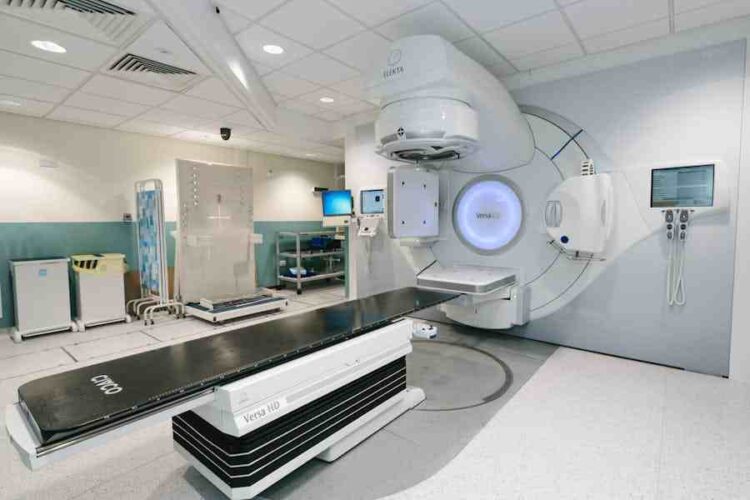It’s particularly interesting to talk today about how the new legal technology is changing therapy privacy, especially for mental health issues like eating or sleeping disorders. It means that you need to learn about apps, policies, and more to help therapists protect your info while offering you better care.
So, take this respite and engage yourself in an exciting mix of law and technology that will surely make a big difference for you and your therapist.
New Techs Reinventing Patient Therapy
1. Teletherapy Platforms
Many teletherapy platforms today, like Zoom for Healthcare or Doxy.me, are highly sought-after in today’s digital age. They’ve become quite in demand, especially considering the increased need for remote therapy sessions. They offer competent encrypted connections, making sure that patient privacy is maintained during virtual therapy sessions.
Actually, in some states like New York, these services can be availed under the Blue Cross Shield coverage, making therapy accessible and reassuring patients about confidentiality and affordability.
These teletherapy platforms are accredited by law to make sure patients feel safe seeking help without worrying about their identity, reputation, or privacy being compromised.
2. Blockchain Technology
One of today’s buzzwords is Blockchain, whether in commercial activities or in healthcare. Because of its decentralized and immutable nature, Blockchain can guarantee data integrity and privacy protection, especially in patient-therapist sessions.
Each block in this chain contains a cryptographic hash of the previous block, which could ably create a continuous and tamper-proof chain of records.
The patient records stored on these blockchains are encrypted and distributed across multiple nodes. This will then make it nearly impossible for any single entity to alter or access the data without proper authorization.
3. Privacy-Preserving Data Analytics
In recent developments, many telehealth firms have been held legally accountable for unlawfully taking or sharing patient information. That’s why these privacy-preserving data analytics, using techniques like differential privacy, allow therapists to analyze patient data while safeguarding individual privacy.
By adding noise or randomness to data queries, its processing makes sure that no single patient information is revealed.
It’s an advanced approach that maintains confidentiality, enabling therapists to derive valuable insights from aggregated data while respecting and protecting the privacy of each patient.
4. Zero-Knowledge Proof Systems
Some systems, like Zcash’s zk-SNARKs, are zero-knowledge-proof systems that enable the verification of patient information without revealing their actual data. It’s a more secure way of preserving the confidentiality of therapist-patient interactions and information.
It’s a way for therapists to verify their patients’ identities without needing to know their specific personal details. It’s an innovation that can ensure privacy while still allowing for necessary verification processes in their sessions.
5. Federated Learning Systems
Today’s decentralized machine learning systems or federated learning systems, like TensorFlow Federated, enable therapists to collaborate on model training across networks while keeping patient data localized. So, instead of sharing raw data, only model updates are exchanged, ensuring patient privacy.
6. Encrypted Messaging Platforms
Over the years, and in order to better protect patient data and privacy, the HIPAA law has been one of the vanguards of protection that ensures encrypted messaging platforms, like Signal or TheraNest, comply with its provisions.
It’s to make sure that all platforms related to them have secure communication, especially between therapists and patients, safeguarding their sensitive data and information. Many relevant laws and regulations that govern patient-therapist data and communication today include:
● General Data Protection Regulation (GDPR)
It’s one legal provision that imposes the protection of people’s information in all sectors and in all their activities, like in healthcare.
● Telemedicine Laws
It’s a set of legal protections covering regulations specific to telemedicine and all its patient engagements. They may vary by jurisdiction, however, especially those standards for remote healthcare delivery.
● State and Federal Privacy Laws
Some of these laws are various state and federal statutes in the United States that regulate the collection, use, and disclosure of personal info by businesses, including healthcare providers.
● Confidentiality Laws
They’re laws that impose legal boundaries and ethical standards that mandate confidentiality in healthcare. They include the obligation of their providers to protect patient information and maintain privacy.
● Electronic Communications Privacy Act
It’s a federal law that addresses the interception of electronic communications and prohibits unauthorized access, including email and electronic health records.
● Health Information Technology for Economic and Clinical Health Act
It’s one of the laws that provide incentives for the health sector’s use of electronic health records (EHR) and further strengthens HIPAA enforcement mechanisms to protect every person’s health information.










